Filter by
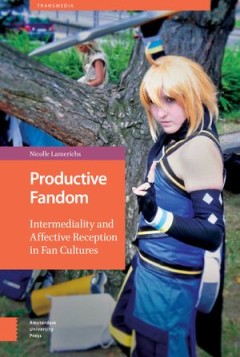
Productive Fandom
This book offers a media ethnography of the digital culture, conventions, and urban spaces associated with fandoms, arguing that fandom is an area of productive, creative, and subversive value.
- Edition
- -
- ISBN/ISSN
- 9789089649386
- Collation
- -
- Series Title
- -
- Call Number
- 791.43 LAM p
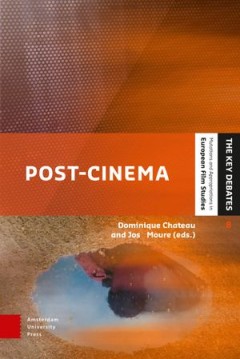
Post-Cinema: Cinema in the Post-art Era
Post-cinema designates a new way of making films. It is time to ask whether this novelty is complete or relative and to evaluate to what extent it represents a unitary or diversified current. The book proposes to integrate the post-cinema question within the post-art question in order to study the new ways of making filmic images. The issue will be considered at three levels: the impression of …
- Edition
- -
- ISBN/ISSN
- 9789048551941
- Collation
- -
- Series Title
- -
- Call Number
- 791.43 POS p
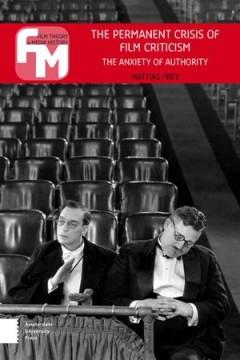
The Permanent Crisis of Film Criticism. The Anxiety of Authority
Film criticism is in crisis. Dwelling on the many film journalists made redundant at newspapers, magazines, and other 'old media' in past years, commentators have voiced existential questions about the purpose and worth of the profession in the age of WordPress blogospheres and proclaimed the 'death of the critic'. Bemoaning the current anarchy of internet amateurs and the lack of authoritative…
- Edition
- -
- ISBN/ISSN
- 9789089647177
- Collation
- -
- Series Title
- -
- Call Number
- 791.43 FRE p
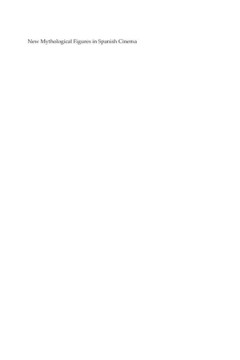
New Mythological Figures in Spanish Cinema
In the 1970s, especially after Franco’s death in 1975, Spanish cinema was bursting at the seams. Numerous film directors broke free from the ancient taboos which had reigned under the dictatorship. They introduced characters who, through their bodies, transgress the traditional borders of social, cultural and sexual identities. Post- Franco cinema exhibits women, homosexuals, transsexuals, an…
- Edition
- -
- ISBN/ISSN
- 9789089643049
- Collation
- -
- Series Title
- -
- Call Number
- 791.43 FEE n
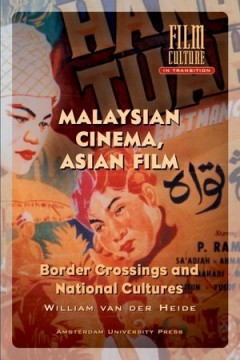
Malaysian Cinema, Asian Film: Border Crossings and National Culture
This monograph departs from traditional studies of national cinema by accentuating the intercultural and intertextual links between Malaysian films and Asian (as well as European and American) film practices. Using cross-cultural analysis, the author characterizes Malaysia as a pluralist society consisting of a multiplicity of cultural identities. Malaysian film reflects this remarkable heterog…
- Edition
- -
- ISBN/ISSN
- 9789053565803
- Collation
- -
- Series Title
- -
- Call Number
- 791.43 HEI m
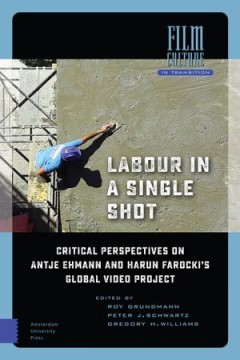
Labour in a Single Shot: Critical Perspectives on Antje Ehmann and Harun Faro…
This collection of essays offers a critical assessment of Labour in a Single Shot, a groundbreaking documentary video workshop. From 2011 to 2014, curator Antje Ehmann and film- and videomaker Harun Farocki produced an art project of truly global proportions. They travelled to fifteen cities around the world to conduct workshops inspired by cinema history’s first film, Workers Leaving the Lum…
- Edition
- -
- ISBN/ISSN
- 9789048550210
- Collation
- -
- Series Title
- -
- Call Number
- 791.43 LAB l
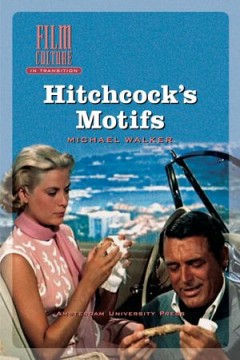
Hitchcock's Motifs
Among the abundant Alfred Hitchcock literature, Hitchcock's Motifs has found a fresh angle. Starting from recurring objects, settings, character-types and events, Michael Walker tracks some forty motifs, themes and clusters across the whole of Hitchcock's oeuvre, including not only all his 52 extant feature films but also representative episodes from his TV series. Connections and deeper inflec…
- Edition
- -
- ISBN/ISSN
- 9789053567739
- Collation
- -
- Series Title
- -
- Call Number
- 791.43 WAL h
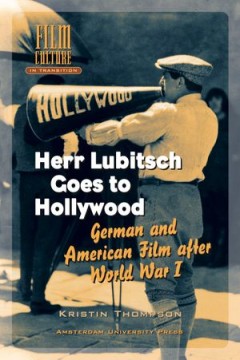
Herr Lubitsch Goes to Hollywood: German and American Film after World War I
Ernst Lubitsch, the German film director who left Berlin for Hollywood in 1923, is best remembered for the famous "Lubitsch touch" in such masterpieces as Trouble in Paradise and Ninotchka, featuring Greta Garbo. Kristin Thompson's study focuses on Lubitsch's silent films from the years between 1918 and 1927, tracing the impact this director had on consolidating classical Hollywood filmmaking. …
- Edition
- -
- ISBN/ISSN
- 9789053567081
- Collation
- -
- Series Title
- -
- Call Number
- 791.43 THO h
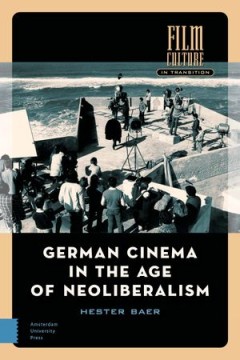
German Cinema in the Age of Neoliberalism
This book presents a new history of German film from 1980-2010, a period that witnessed rapid transformations, including intensified globalization, a restructured world economy, geopolitical realignment, and technological change, all of which have affected cinema in fundamental ways. Rethinking the conventional periodization of German film history, Baer posits 1980-rather than 1989-as a crucial…
- Edition
- -
- ISBN/ISSN
- 9789048551958
- Collation
- -
- Series Title
- -
- Call Number
- 791.43 BAE g
From Grain to Pixel: Third Revised Edition: The Archival Life of Film in Tran…
In From Grain to Pixel , Giovanna Fossati analyzes the transition from analog to digital film and its profound effects on filmmaking and film archiving. Reflecting on the theoretical conceptualization of the medium itself, Fossati poses significant questions about the status of physical film and the practice of its archival preservation, restoration and presentation. From Grain to Pixel attempt…
- Edition
- -
- ISBN/ISSN
- 9789463725002
- Collation
- -
- Series Title
- -
- Call Number
- 791.43 FOS f
 Computer Science, Information & General Works
Computer Science, Information & General Works  Philosophy & Psychology
Philosophy & Psychology  Religion
Religion  Social Sciences
Social Sciences  Language
Language  Pure Science
Pure Science  Applied Sciences
Applied Sciences  Art & Recreation
Art & Recreation  Literature
Literature  History & Geography
History & Geography